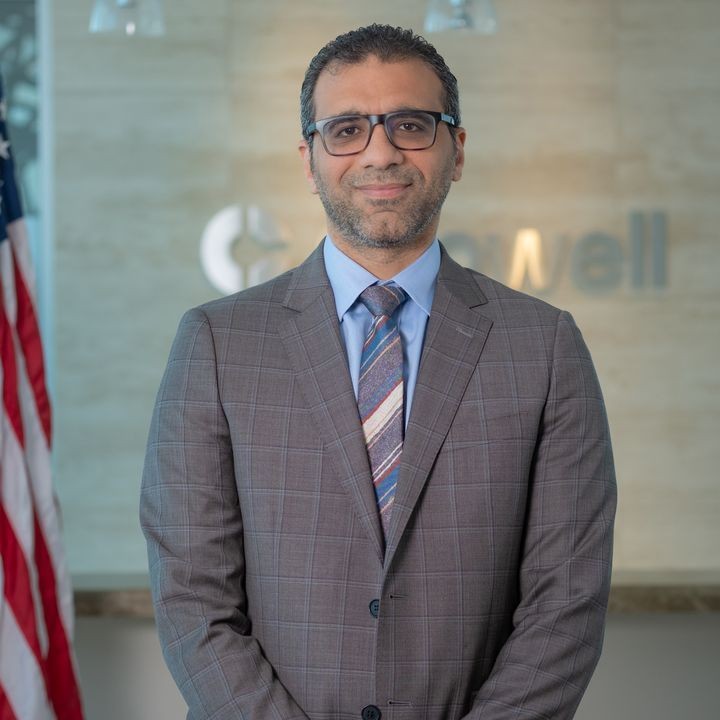Government Affairs
Overview
Crowell’s Government Affairs Group has decades of experience helping clients:
- Create and execute success government affairs strategies to achieve business goals.
- Introduce clients to key U.S. decision makers and educate and advocate on behalf of our client’s business and industry.
- Draft, negotiate, and advocate for new legislation and oppose problematic bills for clients.
- Advocate for clients and track and advise on major government decisions and programs in health care, energy, financial services, infrastructure, technology, and other sectors.
- Represent clients in Congressional investigations and help respond to related crises and related issues.
- Provide in-house training to government affairs and business teams.
Contact
Insights
Speaking Engagement | 01.24.26
Press Coverage | 12.14.25
The Supreme Court Tariff Decision Might Be Coming Soon. 3 Possible Outcomes.
Publication | 12.08.25
When Borders Become Bottlenecks: How Pharma Should Adapt to the New Geopolitical Lens
Press Coverage | 11.05.25
Here’s What to Watch for as Supreme Court Hears Case Challenging Tariffs
Representative Matters
- Assisted Fortune 15 health care company in addressing government affairs issues related to COVID-19, pharmaceutical drugs and medical device supply and logistics.
- Participated in the creation of a multibillion-dollar fund for U.S. victims of terrorism.
- Recovered $500 million for a private equity fund based in Dubai.
- Worked with industry stakeholders to win repeal of a medical device sales tax that was part of the Affordable Care Act.
- Increased funding to provide free vaccines for dependents of US military personnel.
Contact
Insights
Speaking Engagement | 01.24.26
Press Coverage | 12.14.25
The Supreme Court Tariff Decision Might Be Coming Soon. 3 Possible Outcomes.
Publication | 12.08.25
When Borders Become Bottlenecks: How Pharma Should Adapt to the New Geopolitical Lens
Press Coverage | 11.05.25
Here’s What to Watch for as Supreme Court Hears Case Challenging Tariffs
Insights
When Borders Become Bottlenecks: How Pharma Should Adapt to the New Geopolitical Lens
|12.08.25
Pharmaceutical Executive
COVID-19 and Frustrated Contractors – Understanding the Federal Landscape in 2020 and Beyond
|05.19.20
FederalHealthIT
Auer Deference After Kisor: Alive or “Zombified”?
|04.01.20
ABA Spring 2020: Infrastructure, Vol. 34 No. 4
Government Affairs – Congressional Influence on Rulemaking is on the Rise
|02.27.19
Crowell & Moring's Regulatory Forecast 2019
State of Play: Trump's Regulatory Tapestry – Broad Brushstrokes, Wide-Open Spaces, and Major Opportunities
|05.09.17
Crowell & Moring's Regulatory Forecast 2017
Financial Services — Cybersecurity and New Technologies Take Center Stage
|01.19.16
Crowell & Moring's Regulatory Forecast 2016
Regulatory 2016 - The State of Play
|01.19.16
Crowell & Moring's Regulatory Forecast 2016
Regulatory Forecast 2016: What Corporate Counsel Need to Know for the Coming Year
|01.19.16
a Crowell & Moring LLP publication
F.D.A. to Use A.I. in Drug Approvals to ‘Radically Increase Efficiency’
|06.10.25
The New York Times (subscription required)
Crowell & Moring Adds Republican Co-Chair To Government Affairs Group
|05.01.23
The National Law Journal
Senator Grassley’s Ex-Chief Of Staff Joins Crowell & Moring
|05.01.23
Competition Policy International
- |
05.10.16
Crowell & Moring's Government Contracts Legal Forum
'Fair Pay and Safe Workplaces' Rules Head to White House for Final Review
|05.06.16
Crowell & Moring's Government Contracts Legal Forum
- |
02.05.16
Crowell & Moring's Data Law Insights
Supreme Court to Consider Congressionally-Conferred Privacy Breach Standing
|04.29.15
Crowell & Moring's Data Law Insights
Next Generation ACO Model Sets Tone for CMS's Push Toward Value-Based Payment
|03.19.15
Crowell & Moring's Health Law Blog
Cyber Executive Order Continues the Push for Public-Private Partnerships
|02.23.15
Crowell & Moring's Data Law Insights
Federal Funds, States, and Health Care Reform: Innovation and Opportunity in 2015
|01.05.15
Crowell & Moring's Heath Law Blog
Professionals
Insights
Speaking Engagement | 01.24.26
Press Coverage | 12.14.25
The Supreme Court Tariff Decision Might Be Coming Soon. 3 Possible Outcomes.
Publication | 12.08.25
When Borders Become Bottlenecks: How Pharma Should Adapt to the New Geopolitical Lens
Press Coverage | 11.05.25
Here’s What to Watch for as Supreme Court Hears Case Challenging Tariffs
Contact
Insights
Speaking Engagement | 01.24.26
Press Coverage | 12.14.25
The Supreme Court Tariff Decision Might Be Coming Soon. 3 Possible Outcomes.
Publication | 12.08.25
When Borders Become Bottlenecks: How Pharma Should Adapt to the New Geopolitical Lens
Press Coverage | 11.05.25
Here’s What to Watch for as Supreme Court Hears Case Challenging Tariffs















